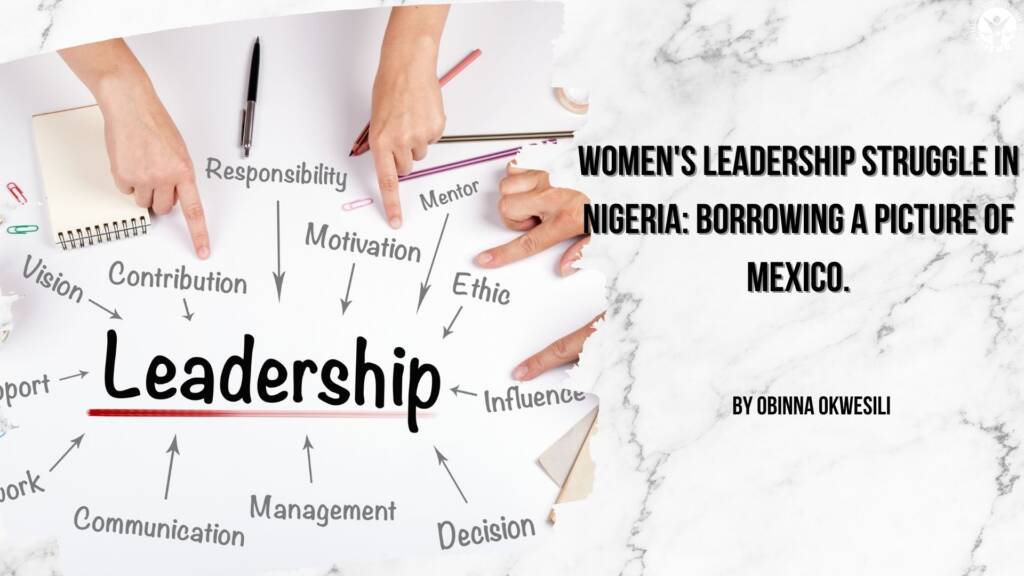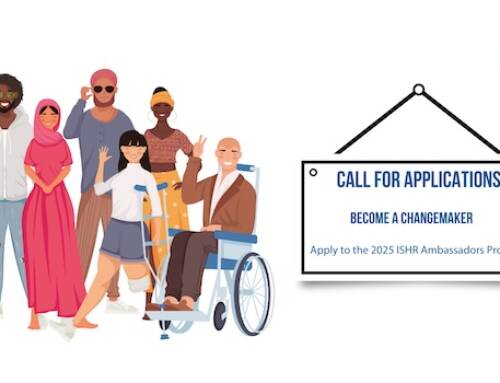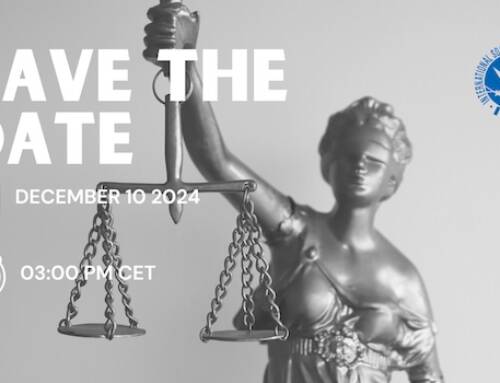Nigeria


Women’s Leadership Struggle in Nigeria: Borrowing a Picture of Mexico
It is 2024 and Mexico has just elected her first female president, Valeria Rodríguez. Giving her victory speech and thanking over 35 million Mexicans, she said,
“I am not alone, we are all here, with our heroines who gave us our homeland, our ancestors, our mothers, our daughters and our granddaughters. I congratulate all Mexicans who today, with their participation, demonstrated that Mexico is a democratic country, with peaceful and very participatory elections.”
These words, largely expressive of the citizenry’s attitude towards elections, also underscore the nation’s acknowledgement of equal electoral franchise between sexes, encouraged by a cultured social consciousness.
For many Nigerian women, slouching under the weight of patriarchal norms, this novelty presents a ray of possibility; a distanced craving signalling what can be. But possibility requires a premise of intentional action. How has Nigeria accommodated the fullness of women in leadership?
Despite constitutional guarantees of gender equality, the path to political power in Nigeria is littered with roadblocks erected by systemic sexism. The family, the smallest unit of society, plays a primary role in the origination of sexist ideologies. The society, through the instrumentality of social institutions, advances these ideals, creating a narrowed concept of gender roles and societal positions. However, there exist deviants of this social culture, who in unlearning sexist ideas, open themselves to a feministic lifestyle of dismantling harmful patriarchal norms and adjusting society’s lens to a clearer, more appropriate, concession.
Women in leadership often raises displeasing concerns for men who hold on to their erroneous belief of leadership being a chromosomic, innate attribute of men. This fallacious reasoning also sits comfortably with some women, who in their bid to maintain a traditional pose of pleasing men, do a great disservice to their unrecognised capabilities. This truth not only acknowledges the need for re-education, especially with youths and teenagers, on ideals of gender equality and patriarchal ills.
Nigerian elections, over the years, have been characterised by depressing levels of violence, bribery, and rigging, all wound in a cancerous thread of tribalism and cronyism. Aside social sexism, these electoral flaws must be trumped by women seeking the stool of representative power. Largely discouraged, It is no wonder that just so few a woman have presented themselves for leading positional roles. In the 2023 General elections, among the rare few who dared contest the presidential election was Ojei Princess Chichi of the Allied Peoples Movement (APM). Though her bid ultimately proved unsuccessful, her very presence on the ballot represented an act of defiance – a repudiation of the deeply entrenched patriarchal system that has marginalized female voices for generations.
Drawing facile parallels between Nigeria and Mexico’s journeys towards female empowerment, however, would be a gross oversimplification that fails to capture the nuanced complexities and unique socio-cultural barriers confronting Nigerian women.
While Mexico has dismantled many of the legal impediments to gender parity, Nigerian women must still weather a painful ordeal of religious fundamentalism and regressive cultural mores. In the predominantly Muslim north, ultra-conservative interpretations of Islamic doctrine are often weaponized to confine women to rigidly subordinate roles, denying them autonomy over their bodies, lives, and ambitions. Even in the largely Christian South, the corrosive remnants of patriarchal traditions linger, their tentacles constricting the ascent of women into leadership positions across all strata of society – from politics and business to academia and beyond.
Yet, for every regressive force, an equally powerful counter-movement is amassing. At the grassroots level, pioneering initiatives are emerging to educate, empower, and elevate Nigerian women, fostering a resilient new generation unwilling to accept the antiquated confines of gender norms. Education rates among Nigerian females are rising, encouraging a wave of brilliant minds previously suppressed by the weight of systemic disadvantages. A youthful awakening stereotyped by revolutionalized extrospection, promises a courageous movement challenging the insidious biases that have calcified the status quo.
The courageous spirit embodied by women like Ojei Princess, who outfaced patriarchy’s hostilities to etch her name onto the presidential ballot, has catalyzed this budding revolution. Her mere presence in an arena once considered an exclusive male bastion has become an exemplary, yet hopeful assurance of admirable possibilities for Nigerian women.
The Nigerian feminist icon, Chimamanda Adichie, writes,
“We cannot always bend the world into shapes that we want, but we can try. We can make a real and true and concerted effort.”
Nigeria’s corrupt sociocultural, religious, and political institutions may pose direct complexities and challenges for women competent and eager to take up representative positions in government, but they must never fail to try. We are in an era of defined societal handicaps: religious extremism, cultural misogyny, institutional inertia, and the dominating interests of men desperately clinging to a fading patriarchal order. But with every dismantled patriarchal norm, Nigerian society inches closer towards an inclusive, equitable future. Mexican citizens have exposed a path, we can similarly tour.
Obinna Okwesili





